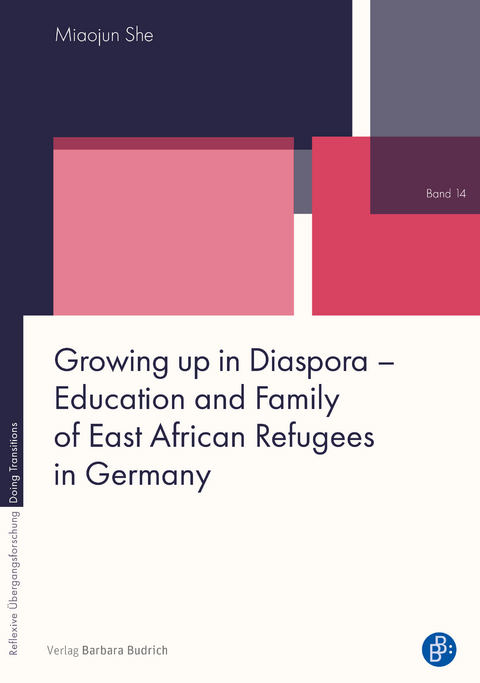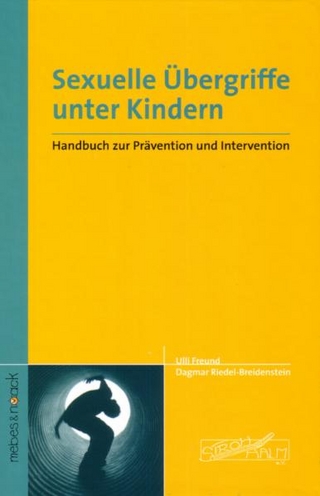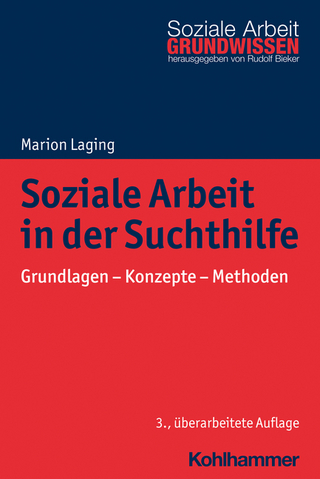
Growing up in Diaspora – Education and Family of East African Refugees in Germany
Verlag Barbara Budrich
978-3-8474-3065-0 (ISBN)
- Noch nicht erschienen (ca. Mai 2025)
- Versandkostenfrei innerhalb Deutschlands
- Auch auf Rechnung
- Verfügbarkeit in der Filiale vor Ort prüfen
- Artikel merken
1. Introduction
2. Boundary-making and an Inquiry about “Young Refugees”
2.1. Refugees in the global nation system
2.1.1. The nation-state system and its influence on East Africa
2.1.2. Border imperialism and categorization of people on the move
2.2. Youth in the modern meritocracy
2.2.1. Between youth and adulthood
2.2.2. Capitalism and marginalization of young adults
2.3. An inquiry about “young refugees” and their “double transitions”
2.4. A brief overview of the research field
3. A Post-structuralist and Post-colonial Biographical Transition Research—Theory and Method
3.1. Toward a theory of (un)doing biographical transitions
3.1.1. The framework of doing differences and doing transitions
3.1.2. Practice theory as the analytical lens
3.2. Biographical research in a post-structuralist and post-colonial tradition
3.2.1. The German tradition of biographical research and its connection with practice theory
3.2.2. Biographical research and post-structuralism
3.2.3. Biographical research and post-colonialism
3.3. Reflexivity as the principle of research practice
4. Research Design and Procedures
4.1. Research design and access to the field
4.1.1. The biographical narrative interview
4.1.2. Recruitment and sampling
4.2. Evaluation and analysis
4.2.1. Evaluation principles
4.2.2. Analyzing steps
4.3. Ethical Considerations
4.4. Limitation of the research design and method
5. Growing up in Diaspora: Case Illustrations
5.1. Kai: Growing up with escape and resilience
5.1.1. Research process and interview constellations
5.1.2. Biographical portrait: living with warfare and resistance
5.1.3. Theoretical summary: education and biographical resistance
5.2. Markus: Longing for equality and cohabitation
5.2.1. Research process and interview constellations
5.2.2. Biographical portrait: escaping persecution and discrimination
5.2.3. Theoretical summary: community and social orientation
5.3. Dilara: coping with marginalization and loneliness
5.2.1. Research process and interview constellations
5.3.2. Biographical portrait: growing up with trauma and hope
5.3.3. Theoretical summary: connection and doing agency
6. Growing up in Diaspora: Dimensions of transitions
6.1. Cases in Overview: Growing up in Diaspora
6.2. Education and the dialectic of vulnerability and resilience
6.2.1. Education in young refugees’ transitions: challenges and opportunities
6.2.2. Educational aspiration and biographical resources
6.2.3. Biographical learning and the dialectic of vulnerability and resilience
6.3. Family and the dialectic of transmission and transformation
6.3.1. Family and the collective migratory path
6.3.2. The transnational familyhood
6.3.3. Strong ties versus weak ties
6.3.4. The dialectic between transmission and transformation
6.4. Temporality—linking the past, present and future in transitions
6.4.1. Temporality in the migration governance
6.4.2. Doing optimism through the imagination of future
6.4.3. Defining agency in the temporal dimension
7. Conclusion and Prospect: Exploring Transitions in Time and Space
7.1. From double transitions to relational transitions
7.2. Research limitations and prospect
References
Appendix
| Erscheint lt. Verlag | 12.5.2025 |
|---|---|
| Reihe/Serie | Reflexive Übergangsforschung – Doing Transitions ; 14 |
| Verlagsort | Leverkusen-Opladen |
| Sprache | englisch |
| Maße | 148 x 210 mm |
| Themenwelt | Sozialwissenschaften ► Pädagogik ► Sozialpädagogik |
| Sozialwissenschaften ► Politik / Verwaltung | |
| Schlagworte | Biographical research • Biographieforschung • Flucht und Migration • forced migration • integration politics • Integrationspolitik • Participation • Partizipation • Postcolonial • Postkolonial • transition research • Übergangsforschung |
| ISBN-10 | 3-8474-3065-3 / 3847430653 |
| ISBN-13 | 978-3-8474-3065-0 / 9783847430650 |
| Zustand | Neuware |
| Informationen gemäß Produktsicherheitsverordnung (GPSR) | |
| Haben Sie eine Frage zum Produkt? |
aus dem Bereich


